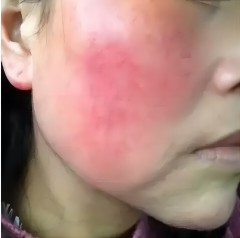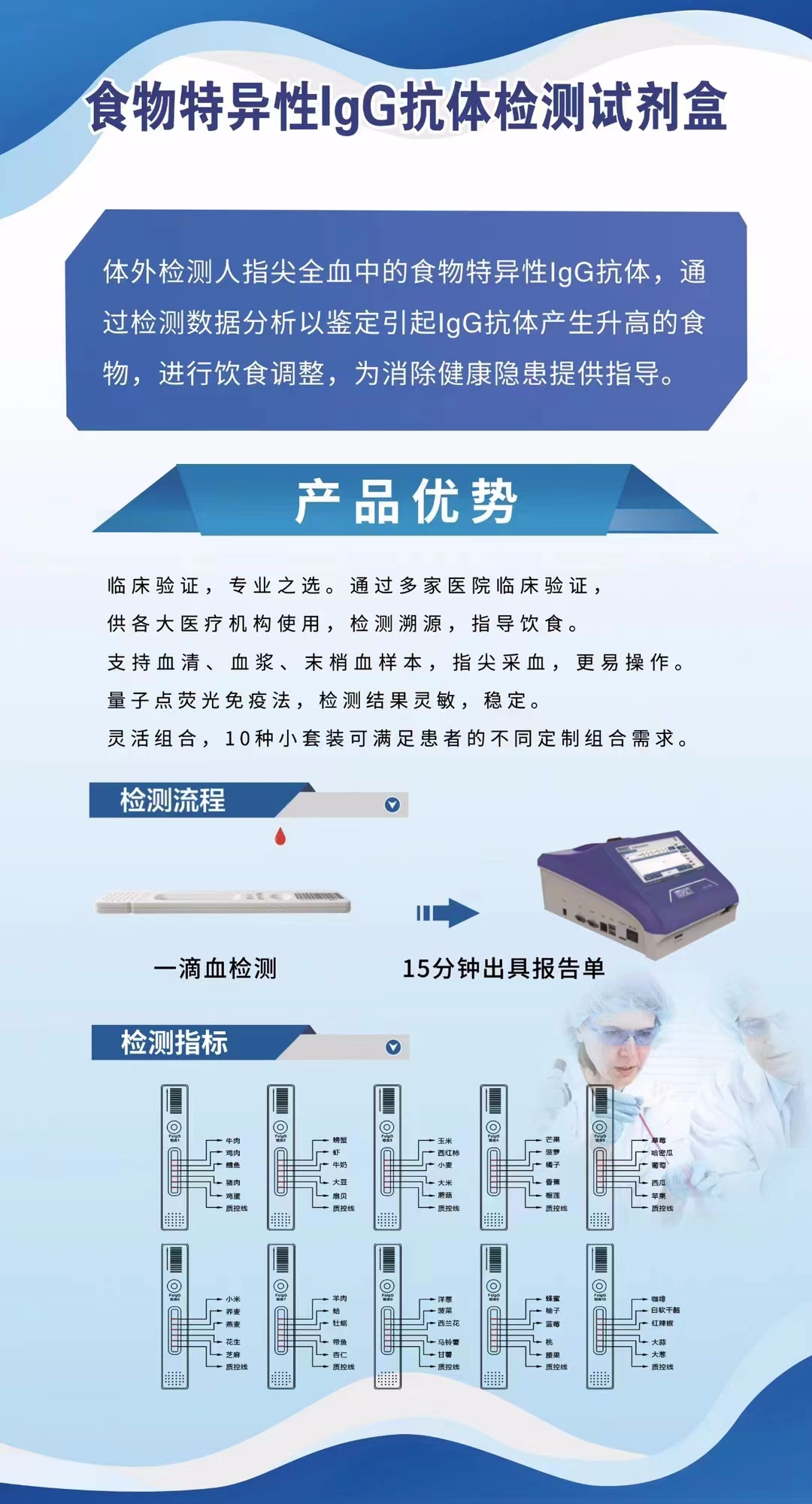My face often turns red, itchy, and hot. The medication has relieved it, but it doesn't take long for it to recur, especially lacking confidence. Apart from some allergies caused by external contact, it is likely that food intolerance is caused by eating.

What is food intolerance?
Food intolerance refers to a complex allergic disease in which the human immune system treats one or more foods that enter the body as harmful substances, resulting in an excessive protective immune response against these substances. Food specific IgG antibodies are produced, which form an immune complex (type III allergic reaction) with food particles. This can cause inflammation in all tissues (including blood vessels) and manifest as symptoms and diseases of various systems throughout the body.
Skin problems caused by food intolerance
Food intolerance is very common. According to the World Organization for Allergy, approximately 2.2-2.5 billion people worldwide are affected by food intolerance, and the number is constantly increasing. Skin symptoms caused by food intolerance: dermatitis, eczema, urticaria, acne, allergic purpura, rash, psoriasis, other skin diseases, etc.
Specific dermatitis:
Food intolerance is highly correlated with atopic dermatitis (AD), and in some cases, they have a causal relationship. The causes of AD are complex, and food intolerance, as a specific inflammatory response mediated by food IgG antibodies, can manifest as symptoms and diseases of various systemic tissues, including ulcerative colitis, allergic purpura, eczema, and AD.
Psoriasis:
Diet is very important for all psoriasis patients, mainly because of the high risk of combined diseases, including diabetes, hypertension and cardiovascular disease. In addition, the treatment effect of weight loss after dietary changes is better, and some patients have improved psoriasis area and severity index (PASI).
Dietary factors may also have a certain impact on psoriasis, such as alcohol, gluten, dairy products, and tomatoes, which are considered high-risk foods for psoriasis patients and may play a triggering role in some patients.
Psoriasis patients should strictly prohibit the use of antibiotics in their daily lives. It is recommended to consume protein through protein powder, as the beef, lamb, pork, chicken, and fish you eat must contain antibiotics. In the process of raising these animals, people will definitely make them eat antibiotics to prevent diseases.
How to adjust your diet to have healthy skin?
1. Understand one's food intolerance
Firstly, we need to understand our own food intolerance. Through professional food intolerance testing, one can understand which foods they are intolerant to and adjust their diet accordingly.

2. Avoid intolerant foods
For foods that have been confirmed to be intolerant, try to avoid consuming them as much as possible. Reduce the frequency of consumption of medium positive foods, such as daily consumption, changing to once every three days, and strictly avoiding strong positive foods.
3. Increase foods rich in vitamins, minerals, and dietary fiber
Eating foods rich in vitamins and minerals, such as fresh vegetables, fruits, nuts, etc., can help improve the skin's immunity and maintain skin health. Dietary fiber can help regulate intestinal peristalsis, promote the growth of gut microbiota, eat more of these foods to obtain sufficient dietary fiber, maintain intestinal health, and reduce the risk of food intolerance.

4. Moderate supplementation of probiotics
Probiotics can help improve the intestinal environment and alleviate symptoms of food intolerance. Moderate supplementation of probiotics can have a positive impact on the skin by improving intestinal health.

5. Maintain good sleep and exercise habits
Good sleep and exercise habits can help improve physical condition, including skin health. Maintain sufficient sleep and engage in regular moderate exercise.

Deheng Medical&DeDu Biological Allergen Testing




